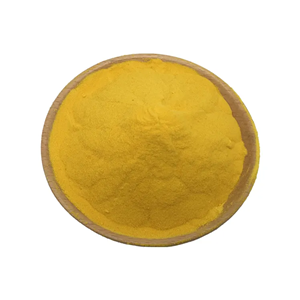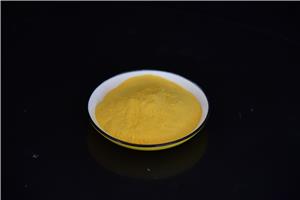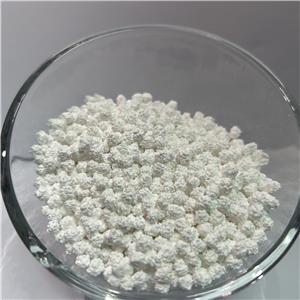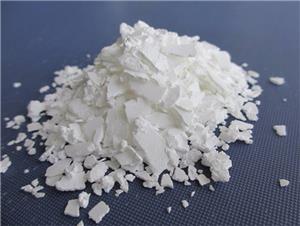What to Add to Your Bath? 7 Benefits of Epsom Salt Bath (and the Scientific Truth)
28-07-2025
In the busy life, taking a bath is a way for many people to relax physically and mentally. Adding some special substances to the bath can enhance the bathing experience. Among them, Epsom salt baths have gained much popularity in recent years. Epsom salt, which is magnesium sulfate, seems ordinary but is said to have many magical effects. So, what are the benefits of adding Epsom salt to a bath? And what is the scientific truth behind these benefits?
The main component of Epsom salt is magnesium sulfate. When it dissolves in water, it breaks down into magnesium ions and sulfate ions. These two kinds of ions may come into contact with the skin during the bath and have certain effects. Next, we will introduce the 7 widely mentioned benefits of Epsom salt baths and their scientific truth.
Benefit 1: Relieving Muscle Soreness
Many people believe that Epsom salt baths can relieve muscle soreness, which is one of the most well-known benefits of Epsom salt baths. From a traditional perspective, after magnesium ions enter the human body through the skin, they can relax muscles, reduce muscle tension and spasms, thereby alleviating muscle soreness after exercise.
However, scientific research is controversial about this. Some studies have shown that the amount of magnesium ions absorbed by the skin is actually very limited, making it difficult to directly affect muscle status. But some people feel that muscle soreness is relieved in actual experience, which may be more because warm water bathing itself promotes blood circulation and relaxes muscles, rather than the direct effect of Epsom salt.
Benefit 2: Reducing Stress and Anxiety
Epsom salt baths are thought to help reduce stress and anxiety. Magnesium is involved in the synthesis and release of various neurotransmitters in the human body. From the traditional view, magnesium ions entering the body during bathing can regulate the nervous system and make people feel relaxed.
From a scientific perspective, although magnesium is important for the function of the nervous system, there is currently insufficient clinical trial evidence to show whether the magnesium absorbed through the skin can reach an effective concentration to affect mood. However, bathing itself is a way to relax. The warm water and quiet environment can make people temporarily get rid of stressors, thus alleviating stress and anxiety to a certain extent.
Benefit 3: Improving Sleep Quality
Many people feel that their sleep quality improves after taking an Epsom salt bath. They believe that magnesium ions help relax the body and brain, making it easier to fall into deep sleep.
Some studies have found that magnesium is indeed related to sleep regulation, and low levels of magnesium in the body may affect sleep. But whether the magnesium absorbed through the skin in an Epsom salt bath can reach the dose that improves sleep needs more research to confirm. However, the sense of physical relaxation brought by bathing can indeed make people in a more comfortable state before going to bed, which indirectly helps them fall asleep.
Benefit 4: Promoting Skin Health
Epsom salt baths are claimed to promote skin health, such as cleaning the skin, removing dead skin cells, and making the skin smoother and more delicate.
From a scientific point of view, the granular texture of Epsom salt may have a certain exfoliating effect during bathing, helping to remove dirt and dead skin on the skin surface. At the same time, magnesium sulfate solution may have a certain anti-inflammatory effect, which may alleviate some mild skin inflammations. But for serious skin problems, Epsom salt baths alone cannot solve them, and professional treatment is needed.
Benefit 5: Relieving Constipation
It is said that Epsom salt baths can relieve constipation because magnesium ions can stimulate intestinal peristalsis.
In fact, the amount of magnesium ions absorbed through the skin is very small, making it difficult to stimulate the intestines enough to relieve constipation. Usually, constipation is relieved by taking Epsom salt (magnesium sulfate) orally, allowing it to work in the intestines. Therefore, there is no scientific basis to support the effect of Epsom salt baths in relieving constipation.
Benefit 6: Reducing Arthritis Pain
Arthritis patients are often advised to try Epsom salt baths, which are thought to reduce joint pain and inflammation.
Magnesium ions may have certain anti-inflammatory and muscle-relaxing effects, which may temporarily relieve the pain caused by arthritis. Warm water bathing can also promote blood circulation around the joints and reduce stiffness. But it should be clear that Epsom salt baths cannot cure arthritis and can only be used as an auxiliary way to relieve symptoms.
Benefit 7: Helping Detoxification
Many people believe that Epsom salt baths can help the body detoxify by expelling toxins from the body through the skin.
However, there is currently no scientific evidence to show that Epsom salt baths have the effect of detoxification. The detoxification of the human body mainly depends on organs such as the liver and kidneys. The main functions of the skin are to protect the body, regulate body temperature, and excrete a small amount of waste (such as some metabolites in sweat). Epsom salt baths cannot significantly increase the excretion of toxins in the body.
In general, Epsom salt baths can indeed bring some comfortable experiences and may have certain benefits in some aspects, but the scientific basis for these benefits varies in strength. When enjoying Epsom salt baths, we should maintain a rational understanding and not overstate their effects. If you have specific health problems, it is best to consult a doctor's advice.




